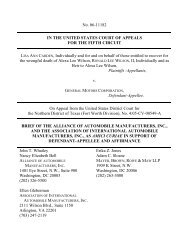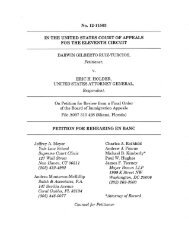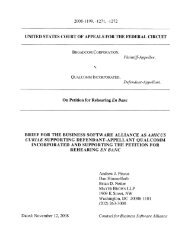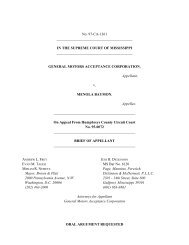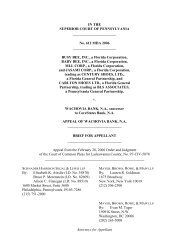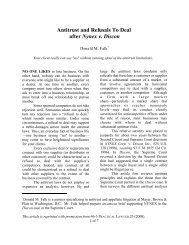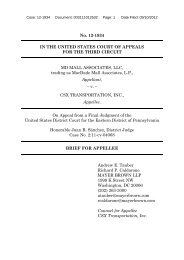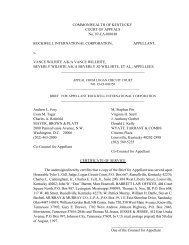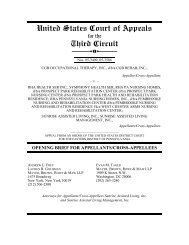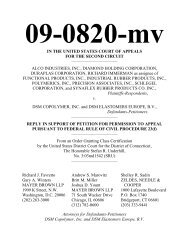No. 5-99-0830 IN THE APPELLATE COURT OF ... - Appellate.net
No. 5-99-0830 IN THE APPELLATE COURT OF ... - Appellate.net
No. 5-99-0830 IN THE APPELLATE COURT OF ... - Appellate.net
Create successful ePaper yourself
Turn your PDF publications into a flip-book with our unique Google optimized e-Paper software.
which is not surprising because they make more money selling them. See PX 1316 at 7-15<br />
(70% of bodyshops agree that OEM parts are more profitable to sell than non-OEM parts).<br />
While allowing plaintiffs to offer the biased views of bodyshop owners about the<br />
quality of non-OEM parts, the circuit court inexplicably refused to allow State Farm to tell<br />
the jury about the views of state legislatures and insurance regulators. If the trial was to be<br />
a swearing contest based on personal opinions about non-OEM parts, the court at least<br />
should have allowed State Farm to tell the jury that, although bodyshops and car companies<br />
had campaigned for years to outlaw the specification of non-OEM parts, no state had agreed<br />
to do so. See, e.g., R. 9136-37. State Farm should also have been allowed to tell the jury<br />
that the majority of states expressly allow insurance companies to specify non-OEM parts<br />
so long as they are of like kind and quality — reflecting a legislative finding that there are<br />
a substantial number of non-OEM parts that meet that description. The circuit court,<br />
however, refused to allow regulators to testify about their states’ conclusions regarding non-<br />
OEM parts, on the ground that the jury could not be told about the differing state laws and<br />
regulations governing the specification of non-OEM parts. C. 28966; R. 10142. Once again,<br />
the court’s desire to preserve the case as a class action skewed its evidentiary rulings,<br />
preventing the jury from hearing a critical counterpoint to the opinions of plaintiffs’<br />
bodyshop witnesses.<br />
2. The Opinions Of Plaintiffs’ Expert Witnesses Were Inherently<br />
Unreliable And Should <strong>No</strong>t Have Been Admitted.<br />
Another shortcut that tainted the trial of this case was the circuit court’s decision to<br />
allow plaintiffs’ experts to offer a variety of overblown generalizations about non-OEM<br />
parts. To be admissible in Illinois, expert testimony must reflect “specialized knowledge”<br />
-89-



